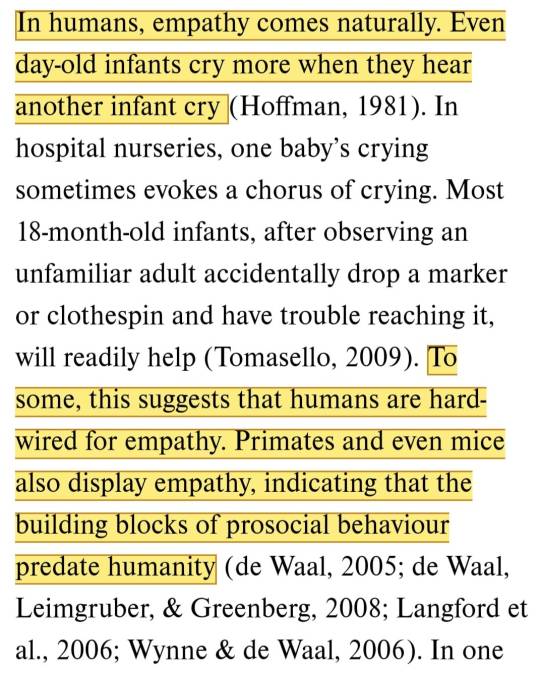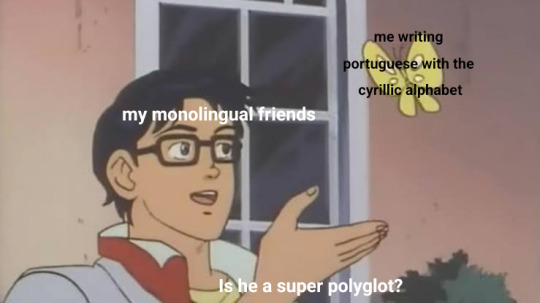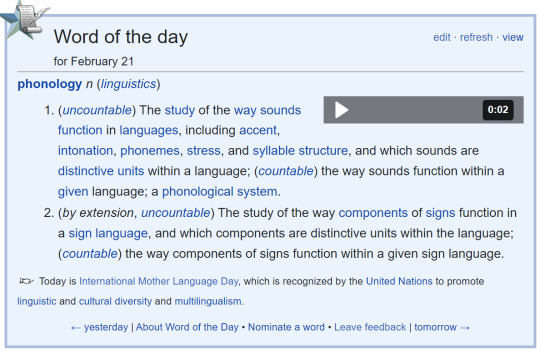he/they, brazilian; i like linguistics, history, and stuff
Don't wanna be here? Send us removal request.
Text
There no shame in never becoming fluent in your target language(s). Learning a new language even a little bit is great. Having the ability to communicate even a little bit is great. Learning about the culture(s) is great. You're doing great. Enjoy the experience.
7K notes
·
View notes
Note
my solution to the protolang blues: only make a rough sketch, and only refer to that sketch when you feel it necessary.
real life linguists haven't worked out the entirety of most protolanguages, and even the ones that are pretty well worked out (basically just PIE) aren't as well understood as any extant language.
if you want some historical context for a word, or some grammar, tinker with the protolang and then work through your changes. it's only necessary to make a whole protolanguage when you plan on deriving a huge family, and if you are that's awesome but i have not and will never take on such a challenge.
i think i'll mess around a bit with the protolang and try to get somewhere. my initial idea was creating a small family, but i've decided i'm gonna focus just in one language for now.
anyways, thanks a lot for the comment/help!
2 notes
·
View notes
Text
Inspired by/a companion to the poll @bimbogollum posted yesterday
#how boring you need to be to have 'alveolar' as your favorite#its just so bland#im personally a palatal fan
45 notes
·
View notes
Text
my biggest problem as a conlanger is that i find joy in evolving the language, but not in creating the proto-lang. i literally have zero full proto-langs cus i keep abandoning my projects from boredom or and unsatisfaction.
#anyone have any ideas/solutions?#i really want to have an a priori naturalistic language#but i just cant#conlanging#conlang
7 notes
·
View notes
Text
wait, what? wdym I have 2 tumblr years????
2 notes
·
View notes
Text
It's always sooooo funny when English people or Americans are like "Why are Irish names so hard to pronounce?? Why are these Welsh words so insane???" that's because it is a different language that you do not speak hope this helps ❤️
31K notes
·
View notes
Note
That thing when US people get asked where they're from and they say their state, while basically everyone else says their country. Foreign people have a better knowledge of your states than you have of our countries.
Also, the US government is the only one to use only .gov, everywhere else needs to use .gov + another domain (like Brazil is .gov.br).
users from outside usa, do you find online spaces too americanised? (please add "see results" option OP <3)
3K notes
·
View notes
Text
jesus fucking christ

31K notes
·
View notes
Text
learned toki pona in preparation for my trip to ma pona.. where- where is it again?
107 notes
·
View notes
Text
some loser: humans are innately selfish creatures
my psych book:

112K notes
·
View notes
Text

#also with all the other scripts i know#why can't you understand the difference between an alphabet/script and an language?#linguistics#language
9 notes
·
View notes
Text
Some are funny, but most make me very angry and it's very hard for me as a professional amateur linguistics fan ✨
Language is literally everywhere so it's so easy for people to have bad takes at it
5 notes
·
View notes
Text
Language is literally everywhere so it's so easy for people to have bad takes at it
5 notes
·
View notes
Text
Free Online Language Courses

Here is a masterpost of MOOCs (massive open online courses) that are available, archived, or starting soon. I think they will help those that like to learn with a teacher or with videos. You can always check the audit course or no certificate option so that you can learn for free.
American Sign Language
ASL University
Sign Language Structure, Learning, and Change
Arabic
Arabic Without Walls
Madinah Arabic
Moroccan Arabic
Armenian
Depi Hayk
Bengali
Learn Bangla (Register to see course)
Catalan
Parla.Cat
Speak Cat
Chinese (Mandarin)
Beginner
Chinese for Beginners
Chinese Characters for Beginners
Chinese for HSK 1
Chinese for HSK 2
Chinese for HSK 3 I & II
Chinese for HSK 4
Chinese for HSK 5
Mandarin Chinese Level I
Mandarin Chinese Essentials
Mandarin Chinese for Business
More Chinese for Beginners
Start Talking Mandarin Chinese
UT Gateway to Chinese
Intermediate
Intermediate Business Chinese
Intermediate Chinese Grammar
Mandarin for Intermediate Learners I
Dutch
Introduction to Dutch
English
Online Courses here
Resources Here
Faroese
Faroese Course
Finnish
A Taste of Finnish
French
Beginner
AP French Language and Culture
Elementary French I & II
Français Interactif
Vivre en France - A1
Vivre en France- A2
Intermediate & Advanced
French Intermediate course B1-B2
Passe-Partout
Travailler en France A2-B1
Vivre en France - B1
German
Beginner
Deutsch im Blick
German Project
German at Work
Goethe Institute
Gwich’in
Introduction to Gwich’in Language
Hebrew
Biblical Hebrew
UT Austin
Hindi
A Door into Hindi
Virtual Hindi
Icelandic
Icelandic 1-5
Indonesian
Learn Indonesian
Irish
Irish 101, 102, 103, 104, 105, 106, 107
Italian
Beginner
Beginner’s Italian I
Introduction to Italian
Intermediate & Advanced
AP Italian Language and Culture
Intermediate Italian I
Advanced Italian I
Japanese
Genki
Japanese JOSHU
Japanese Pronunciation
Marugoto Courses
Tufs JpLang
Korean
Beginner
First Step Korean
How to Study Korean
Introduction to Korean
Learn to Speak Korean
Pathway to Spoken Korean
Intermediate
Intermediate Korean
Norwegian
Introduction to Norwegian I, Norwegian II
Norwegian on the Web
Persian
Easy Persian
PersianDee
Polish
Online Course
Portuguese
Pluralidades em Português Brasileiro
Russian
Beginner
A1 Course
I speak Russian
Intermediate
B1 Course
B1+ Course
B2.1 Course
B2.2 Course
Spanish
Beginner
AP Spanish Language & Culture
Basic Spanish I, Spanish II
Spanish for beginners
Spanish for Beginners 1, 2, 3, 4, 5, 6
Spanish Vocabulary
Advanced
Corrección, Estilo y Variaciones
Leer a Macondo
Swahili
Online Course
Turkish
Online Course
Ukrainian
Read Ukrainian
Speak Ukrainian
Welsh
Beginner’s Welsh
Discovering Wales
Yoruba
Yorùbá Yé Mi
Multiple Languages
Ancient Languages
More Language Learning Resources & Websites!
Last updated: May 2019
215K notes
·
View notes
Text
if english was consistently written, i would not have the lot-cloth-thought-palm merger
i have since learned how to pronounce and [kinda] differentiate /ɑ/, /ɒ/, and /ɔ/; i just don't know where to put each one so i only use /ɔ/
6 notes
·
View notes
Text
Happy International Mother Language Day!
Feliz Dia Internacional da Língua Materna!

woohoo.
13 notes
·
View notes
